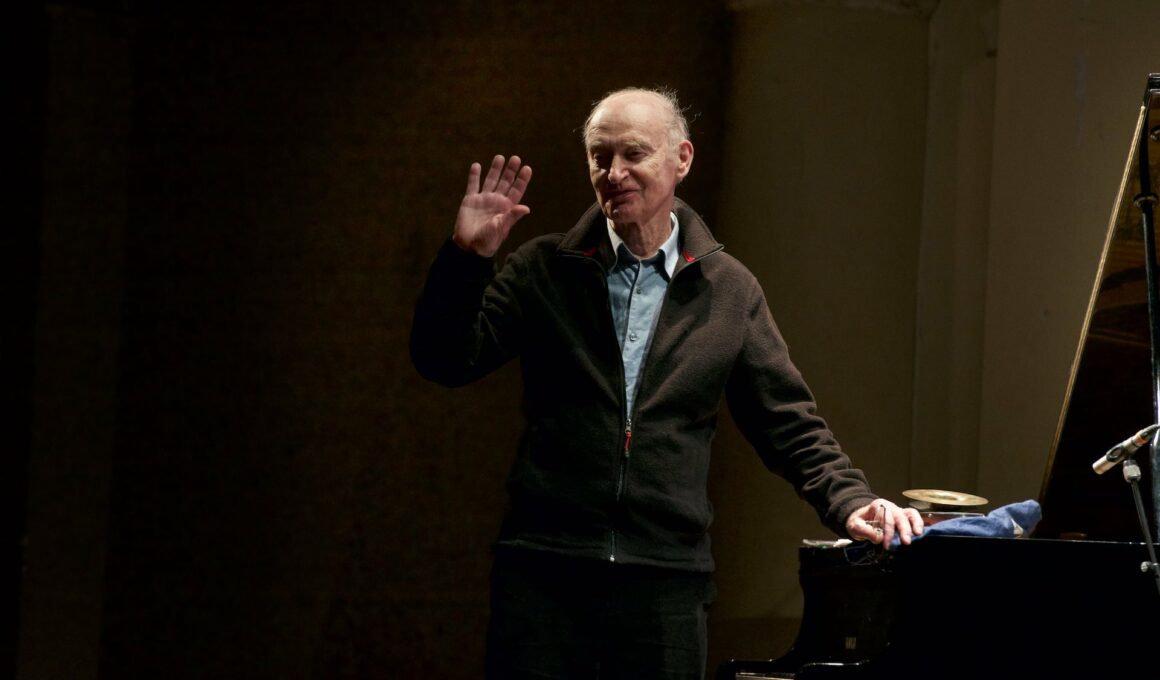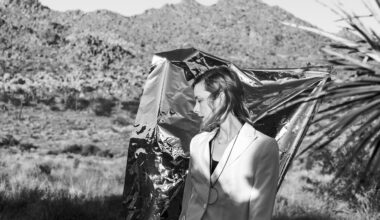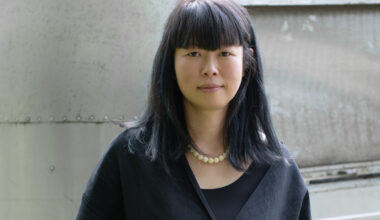Christian Wolff was born in 1934 in Nice, France, but has lived mostly in the U.S. since 1941. He studied piano with Grete Sultan and, briefly, composition with John Cage. Though mostly self-taught as a composer, associations with John Cage, Morton Feldman, David Tudor, Earle Brown, Frederic Rzewski and Cornelius Cardew have been important for him.
A particular feature of his music has been to allow performers various degrees of freedom and interaction at the actual time of performance. His music is published by C.F. Peters, New York, and a good portion of it has been recorded. A number of pieces have been used by Merce Cunningham and the Cunningham Dance Company, starting in 1953.
Wolff has also been active as a performer and as an improviser – with, among others, Takehisa Kosugi, Steve Lacey, Keith Rowe, William Winant, Kui Dong, Larry Polansky and the group AMM. His writings on music, up to 1998, are collected in the book “Cues: Writings and Conversations”, published by MusikTexte, Cologne. He has received awards and grants from the American Academy and National Institute of Arts and Letters, DAAD Berlin, the Asian Cultural Council, the Fromm Foundation, the Foundation for Contemporary Performance Arts (the John Cage award for music) and the Mellon Foundation.
He is a member of the Akademie der Künste in Berlin and has received an honorary Doctor of Arts degree from the California Institute of the Arts. Academically trained at Harvard as a classicist, Wolff has taught classics at Harvard and from 1971 to 1999 was professor of Classics and Music at Dartmouth College.
Christian Wolff is part of the 7th Month of Contemporary Music in 2023, which will present the diversity of the scene packed into a 30-day festival. He will attend the opening concert, a portrait concert focused on his work.
FACTS
1. Born Nice, France, 1934.
2. Parents Helen and Kurt Wolff.
3. Has lived since 1941 mostly in U.S.
1. What is the biggest inspiration for your music?
Experiencing (hearing) other music, all kinds, ‘classical’, Dixieland, Varese, Satie, Webern, Ives, Cage, Xenakis, Feldman, and performers, David Tudor, Robyn Schulkowsky.
2. How and when did you get into making music?
Listening to, attending concerts of, music (as in 1.), from about age 8 (experimental composers from about age 13). Composing started around age 13.
3. What are 5 of your favourite albums of all time?
Bach, Cantata #106, Buxtehude (any CD), Feldman “For John Cage”, Cage, “Sonatas and Interludes”, Gombert, “Lugebat David Absalon”.
4. What do you associate with Berlin?
Many relatives, mostly distant, many unknown cousins, and two families closer, and a niece, the company and music-making of Robyn Schulkowsky and Joey Baron, sometimes Olga Neuwirth and Matthias Spahlinger.
5. What’s your favourite place in your town?
The grocery store and the University library (equally).
6. If there was no music in the world, what would you do instead?
I can’t imagine that. There is no known human community that does not have a music.
7. What was the last record/music you bought or listen?
Can’t remember (too many).
8. Who would you most like to collaborate with?
I assume this is apart from those I have already collaborated with (e.g. David Tudor, Robyn Schulkowsky, Cornelius Cardew, John Tilbury, Eddie Prevost, Keith Rowe, et al.). I don’t know.
9. What was your best gig (as performer or spectator)?
I have to mention two: 1) playing with David Tudor and John Cage in 1965 at the Massachusetts Institute of Technology (MIT) in Cambrige, Massachusetts. 2) playing with Rohan deSaram and Robyn Schulkowsky in Louth, Ireland, in 2015.
10. How important is technology to your creative process?
I’ve liked using and sometimes playing electric guitars. If at all possible, I prefer analog to digital. I wouldn’t ever use a computer for composition.
After so many years in the avant-garde music scene, what is it about new music that still interests you?
The possibility of, the need for, renewal and change, especially as that might affect our larger society. The avoidance of nostalgia.


